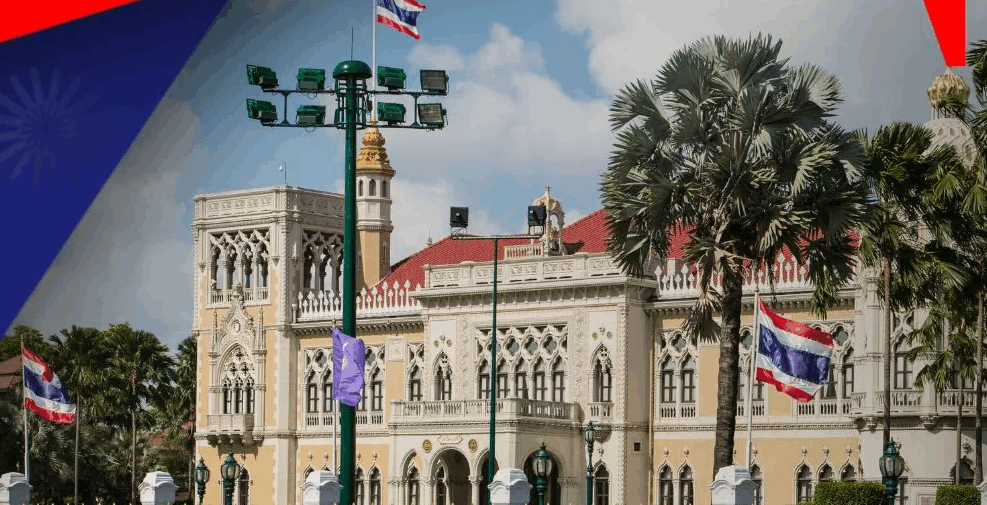The Thai government is set to decide on July 7 whether to withdraw or postpone the Entertainment Complex Bill, which seeks to legalize casino gambling to boost economic growth. The bill’s future is uncertain amid Prime Minister Paetongtarn Shinawatra’s suspension, cabinet reshuffles, and rising political instability. A Senate panel has raised transparency concerns, and the public remains sharply divided over the proposal.
Thailand to Decide Fate of Entertainment Complex Bill Amid Political Turmoil

Government Reconsiders Casino Bill Timeline Under Political Pressure
The Thai government is expected to announce on Monday, July 7, whether it will withdraw or delay the controversial Entertainment Complex Bill from the parliamentary agenda. According to the Bangkok Post, the decision comes in the wake of Prime Minister Paetongtarn Shinawatra’s suspension by the Constitutional Court and a recent cabinet reshuffle—highlighting how ongoing political instability is now directly affecting the legislative process.
Chousak Sirinil, Minister of the Prime Minister’s Office, confirmed that the administration is reassessing the timing and strategy for advancing the bill. Although formal withdrawal usually requires a House resolution, the bill can be suspended immediately if there are no objections from lawmakers.
Originally slated for urgent consideration in the current parliamentary session, the bill is now being deprioritized in favor of pushing an amnesty bill. The final decision on whether to proceed with or postpone the legislation is expected at Monday’s meeting of the government whip committee.
Senate Flags Transparency Issues, Lists 12 Major Concerns
A Senate committee chaired by Weeraphan Suwannamai has raised serious concerns about the transparency of the government’s handling of the casino bill. The panel believes key legal and financial details may have been deliberately omitted or insufficiently disclosed.
The committee has outlined 12 major issues, including:
- The financial structure of the proposed development;
- The legal justification for selecting Klong Toey Port as the development site;
- The licensing and approval process for casino operators;
- Whether the bill implicitly authorizes the construction of five casinos;
- Potential violations of existing expropriation laws in the bill’s land use clauses;
- Whether casino revenue truly forms the economic core of the broader complex.
Prime Minister’s Suspension Adds to Uncertainty
Uncertainty surrounding the bill has deepened following the Constitutional Court’s decision to suspend Prime Minister Paetongtarn while it investigates whether she violated ethical standards. The case stems from the unauthorized release of a phone call with Cambodia’s former leader Hun Sen, during which Paetongtarn was heard criticizing a senior Thai military commander and appearing to align with Hun Sen—sparking accusations of compromising national sovereignty.
Deputy Prime Minister Anutin Charnvirakul is expected to assume a caretaker leadership role. Meanwhile, a major coalition party has exited the ruling alliance, weakening the government’s parliamentary majority and raising the possibility of a no-confidence vote by the opposition.
Public Deeply Divided Over Casino Legalization
The Entertainment Complex Bill aims to legalize casino gambling as part of a broader strategy to boost tourism and economic growth. However, it has triggered sharp public debate. Critics argue the legislation lacks clear regulatory frameworks and fails to address long-standing problems associated with illegal gambling.
One particular clause has drawn widespread criticism: the bill proposes that only Thai nationals with at least 50 million baht (approximately USD 1.35 million) in savings may enter casinos—a measure seen as catering to the elite. Although the ruling Pheu Thai Party claims it is working with the Anti-Money Laundering Office (AMLO) to implement safeguards, civil society groups continue to decry the bill’s lack of transparency and rushed legislative process.
Conclusion: Political Instability May Decide the Bill’s Fate
With Thailand’s political landscape growing increasingly volatile, the future of the Entertainment Complex Bill remains highly uncertain. Whether the government chooses to delay or withdraw the proposal, its legislative trajectory is expected to remain a focal point of national debate and political maneuvering in the weeks ahead.












